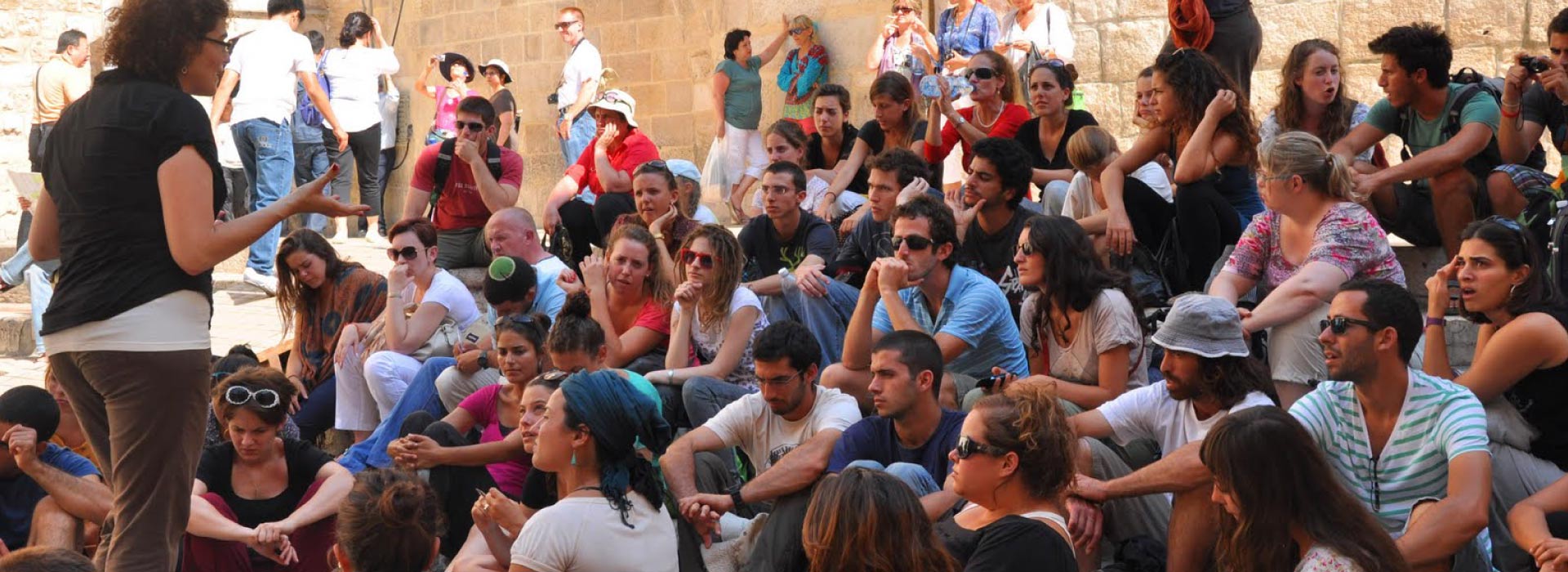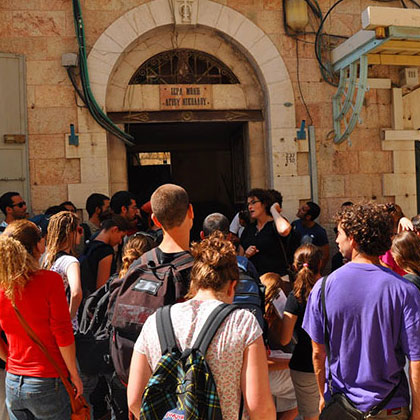
Jerusalem Center for Jewish – Christian Relations
About the program

JCJCR was established in 2004 to meet the challenges posed by the complex and special encounter between the Jewish majority population and the Christian Arab minority in the Holy Land. JCJCR runs a wide range of courses, conferences, seminars and lectures on topics such as Christian communities in the Holy Land, local Jewish-Christian relations and interfaith and intercultural relations. JCJCR targets key audiences such as teachers and tour guides, as well as stakeholders including Israeli government and military officials.
To date, we have collaborated on specific issues or programs with over 120 Jewish, Christian, interfaith, intercultural, educational and public bodies. Over 6,000 individuals are directly involved in our activities each year.

Courses for the General Public


Activities of Jerusalem Center for Jewish – Christian Relations
JCJCR Courses
The Center initiates and runs courses throughout the country for diverse audiences. Most of the courses are for Israeli Jewish audiences and focus on the local Christian communities, their history, their heritage and their traditions. The aim of the courses is to impart basic knowledge alongside encouraging understanding of and tolerance towards others, and fostering respect for minority communities. The Center also organizes courses for Arab audiences that provide information on Jewish traditions and explore issues related to Israeli Jewish identity.
All courses are conducted in cooperation with educational institutions such as teachers-training colleges and universities.
Teacher Training: Annual courses of 56 hours in teacher-training colleges focus on the history, heritage and traditions of the Christian communities in the Holy Land. The courses give an overview of the birth of Christianity and the history of the Churches, and then move on to other topics such as Jewish-Christian relations, the relations between the State of Israel and the Churches, the education system and the teaching of Christianity, the holiday calendar of the local communities, the lay people and the clergy. During the course, the teachers visit sites related to the topics studied. In recent years the courses have been taught at David Yellin College and the Kerem Institute in Jerusalem and at Seminar HaKibbutzim in Tel Aviv.
Teaching Religions: The Center holds additional courses examining the question of how to teach religions in the formal and informal educational system, and teaching religions in the framework of educational tours. The courses are intended for student teachers and their purpose is to enable teachers to develop tools for teaching religions creatively in the classroom.
Short courses: courses dealing with familiarity with the Christian communities, their scriptures and traditions. The courses include a combination of tours and class meetings, and are intended for pre- and post- army preparatory courses and informal study frameworks.
Short courses: The courses are held annually in cooperation with the Department of Comparative Religion at the Hebrew University in the framework of the “Introduction to Christianity” class, in which the participants are exposed to the communities, the holy sites, and the past and present of the city of Jerusalem.
Short courses for the Arab public: The courses are held in the Galilee and expose participants to the historical and cultural background of Jewish society in Israel. The courses deal with subjects related to religious and cultural heritage and the different streams and groups that make up Jewish society in Israel.

Conferences and Symposia

The Center initiates and organizes conferences for selected target audiences and symposia open to the general public, focusing on historical and current issues that affect the relations between Jews and Christians in the Holy Land. The conferences are held in cooperation with other educational institutions.
In the past, conferences have dealt with various topics such as the changes in the Catholic Church following the Second Vatican Council; the religious world of the communities of migrant workers and asylum seekers in Israel; the contribution of papal visits to relations between Jews and Christians in Israel; a series of conferences devoted to each Christian community; the question of church property; Israeli policy towards churches; and the Christian education system.
Information services
The aim of JCJCR’s information services is to offer Jewish and Arab society in Israel up-to-date information on issues related to Christian communities and Jewish-Christian relations. The Center offers historical and current information to students and researchers, foreign and local journalists, diplomatic missions, public and government institutions, religious institutions, academic institutions and interested parties.
For further information contact: info@rossingcenter.org or hanab@rossingcenter.org
Office 02-6764103
Pre-military Preparatory Courses
A unique program for pre-military preparatory courses: acquaintance with the three religions
The Jerusalem Center for Jewish-Christian Relations works to develop mutual respect, tolerance and interfaith understanding through an in-depth acquaintance with the diverse facets of the religions that make up the amazing mosaic that is Israeli society. The Center has extensive experience in programs designed for a young, critical and curious audience.
The center offers a basic workshop for getting acquainted with the three monotheistic religions, alongside focused workshops on Islam and Christianity in the State of Israel. The workshops are suitable for groups interested in enriching their knowledge and understanding of Israeli society, discussing the values related to accepting the other, examining the place of Scripture in the religious experience, and deepening their knowledge of the monotheistic world. The workshops are modular and adapted to the needs of the group, and are offered in a full or partial format.
What’s on the menu?
- Shared roots: Introductory workshop about the three religions (about 3 hours)
- Seal of the Prophets: Introductory Workshop on Islam (about 3 hours)
- Holy Trinity: Introductory Workshop on Christianity (about 3 hours)
* The workshops combine reading of sacred texts of the various religions as a basis for subsequent in-depth discussion.
* The three workshops can be held as one full day of activity.
* It is possible and even recommended to combine the workshops with tours, so that the participants will be able to get to know the various religions ‘through their legs’ and discover some hidden faces of the Holy Land.
* The duration of the workshop can be adapted to the group’s specific needs.

From the Participants



